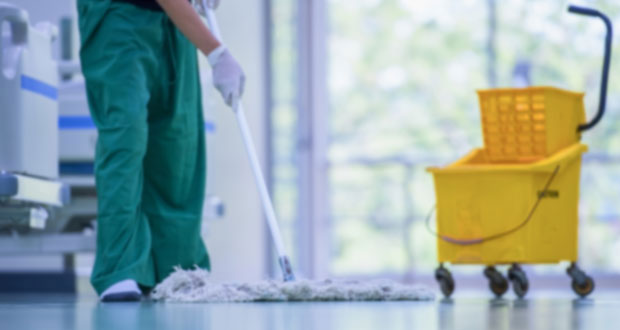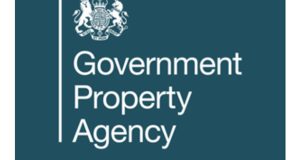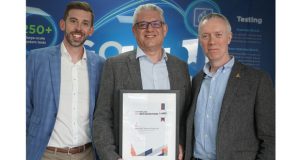The Home Secretary Suella Braverman’s comments about reducing migrant workers entering the country have been branded as “ridiculous”, “completely out of touch” and “divorced from reality” by leaders of the cleaning industry.
The £59 billion cleaning, hygiene and waste sector has been suffering from “severe” staff shortages since a tightening of immigration rules last year left cleaning and hygiene professionals incorrectly labelled as “unskilled”, making it more difficult for overseas workers to join the industry.
The British Cleaning Council (BCC) has been calling for Government to recognise the vital work of sector staff and help with the recruitment crisis in the sector, which is one of the 10 biggest industries in the country, for over a year without success.
With Covid cases rising nationally, the UK heading into the flu season and monkeypox cases already prevalent, the industry body has warned the crisis could hamper the nation’s 1.47 million cleaning staff from carrying out their vital, frontline role of keeping hospitals, schools, supermarkets and other public buildings virus-free.
The Home Secretary told the Sun on Sunday that Britain had too many low-skilled migrant workers and that the Government aims to stick to a 2019 election pledge to lower net migration.
BCC Chairman Jim Melvin said: “I was appalled to hear these ridiculous and completely out of touch comments from a Home Secretary. They are completely divorced from the reality that industries like ours face with huge recruitment problems.
“Putting more restrictions on workers entering the country when there already aren’t anywhere near enough UK nationals coming forward to fill the mass vacancies is absurd. It is also seems very surprising from a politician whose own family, I believe, were migrants, to pursue such a short-sighted policy.
“In the healthcare sector, cleaning staff are close to breaking point trying to keep facilities virus-free and throughout the industry we are struggling to maintain the standards needed to keep the public healthy, safe and well because of the number of vacancies.
“With the risks posed by Coronavirus, flu and monkey pox increasing, I dread to think what could happen over the winter. The lack of staff could affect hygiene standards, and who knows, it could arguably put some people’s lives at risk.
“I truly hope that is not the case, but the Government should consider themselves pre-warned and surely we have to learn lessons from the last few years. The industry is desperate for the same kind of help that other sectors have received but the Government is not listening.
“It has classified cleaning staff as unskilled but, in fact, the sector’s skilled and professional personnel perform a vital, frontline role that needs to be recognised. Strangely, I don’t recall Mrs Braverman decrying the unskilled nature of our brave colleagues over the last few years. It would appear that yesterday’s heroes are today’s unskilled and unwanted.”
The cleaning and hygiene industry has traditionally depended on employees of all nationalities, with Labour Force Survey figures from 2020 showing that 20 per cent of the cleaning and hygiene industry workforce nationwide were from overseas, rising to 55 per cent in London.
But following the new rules brought in by the Immigration Act in 2021 and Brexit, many foreign nationals working in the industry left the country and have not returned.
UK nationals have traditionally not joined the industry and so vacant positions are proving difficult to fill.
The scale of the recruitment crunch was recently highlighted when figures from the Recruitment & Employment Confederation’s Labour Market Tracker showed that the number of job postings for cleaning staff increased by 11 per cent in just one week, a higher rate than for nurses, care workers or primary school teachers.
While other sectors, such as poultry, truck driving and fruit picking have all received Government help due to recruitment issues the BCC has been unable to even secure a meeting to discuss the issues.
It is urgently calling for the Government to “recognise that cleaning staff are frontline keyworkers and play a vital role in keeping people safe, healthy and well”.
The BCC wants the Government to work with the industry to:
- review recruitment in relation to staff availability, the Immigration Act, the Apprenticeship Levy, rates and specification requirements; and
- develop a short-term and long-term strategy for the industry in relation to training and skills and changing cultural and social attitudes to make the profession a more attractive choice of career.
Providing a safe, secure and compliant workplace is a key goal for many facilities managers today, coping with multiple regulations, strict data protection rules and new hybrid working practices is a challenge that can’t be ignored. But how do you achieve this across multiple sites and still control costs, reduce bottlenecks and manage the flow of visitors to your facility?
Pitney Bowes, a global technology company that provides commerce solutions in the areas of ecommerce, shipping, mailing and financial services has created a survey to find out how you’re managing these challenges today and how you are preparing for the future.
Please share your experiences and opinions on a safe, secure and compliant workplace by filling in this short survey. It will take just five minutes to complete and offers the chance to win a £150 Amazon gift card.
To take part in the survey click here.





